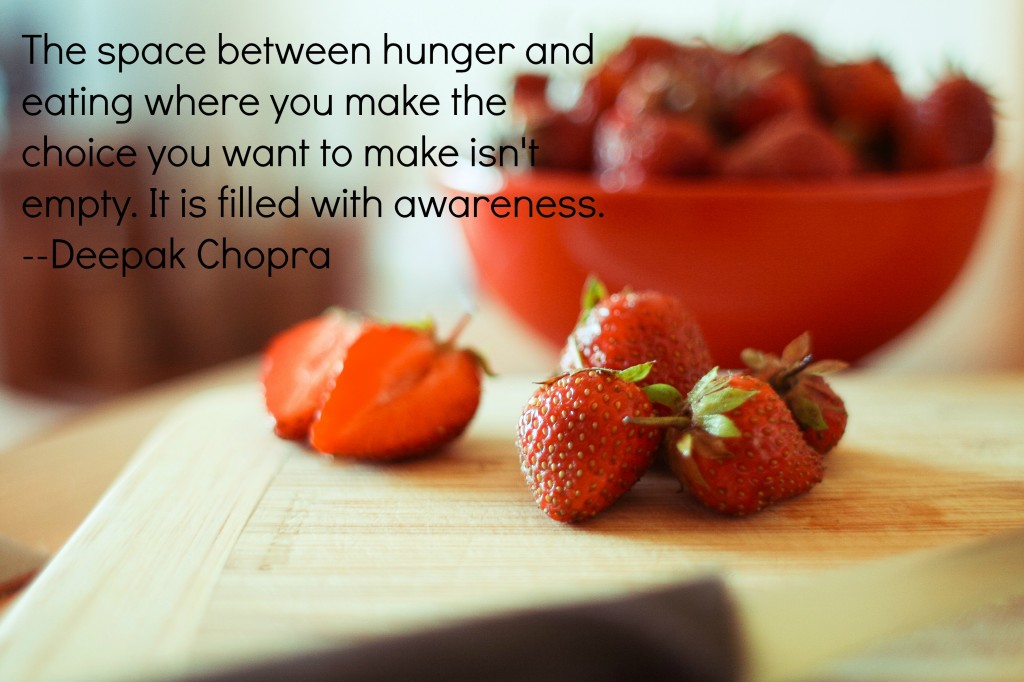Let’s use the practice of mindfulness to explore the difference between genuine hunger, craving, and desire.
Hunger is your body’s signal that it is time to eat. This is natural and good. However, many people experience the physical sensation of hunger and view it as a state of emergency, and respond in an out-of-proportion way. While we need to heed our body’s signals, normal hunger is not an emergency.
It is important to mindfully examine what feelings arise when confronted with hunger in order to gain a better understanding of how we handle this physical sensation.
Try eating small, frequent meals so that you avoid feeling too hungry. Excessive hunger will cause you to overeat. Skipping meals will also trigger overeating. Try to structure your meals/snacks in a way to avoid feeling too hungry, while still allowing for a healthy sense of hunger to arise.
Craving is often the result of a junk-food addiction, or a chronically unhealthy diet. The Mindful Life classes go into greater detail about this phenomena, but the overarching point is that the food industry deliberately manufactures food to produce craving and dependency. Rarely do we crave an apple or some almonds. People don’t usually lament on how they are unable to have just one asparagus spear. Usually, we crave chips, ice cream, or fast food—foods that have been specifically created to produce cravings. Over-reliance on these foods may also cause deficiencies in nutrients that present themselves as cravings.
The good news is that slowly, over time you CAN restructure your lifestyle so that you are not controlled by these cravings. In the meantime, we use non-judgmental awareness to become aware of our cravings and potential triggers.
Desire to eat can be caused by several things. Simple habit, an emotional trigger, a social ritual, a holiday, using food as a reward, viewing an appealing food advertisement, and so on. It is important to understand what lies behind the desire to eat, so that you can address the root cause. This may be one of the more tricky areas to address, and will require the tools of mindful awareness, self-compassion, and patience.

